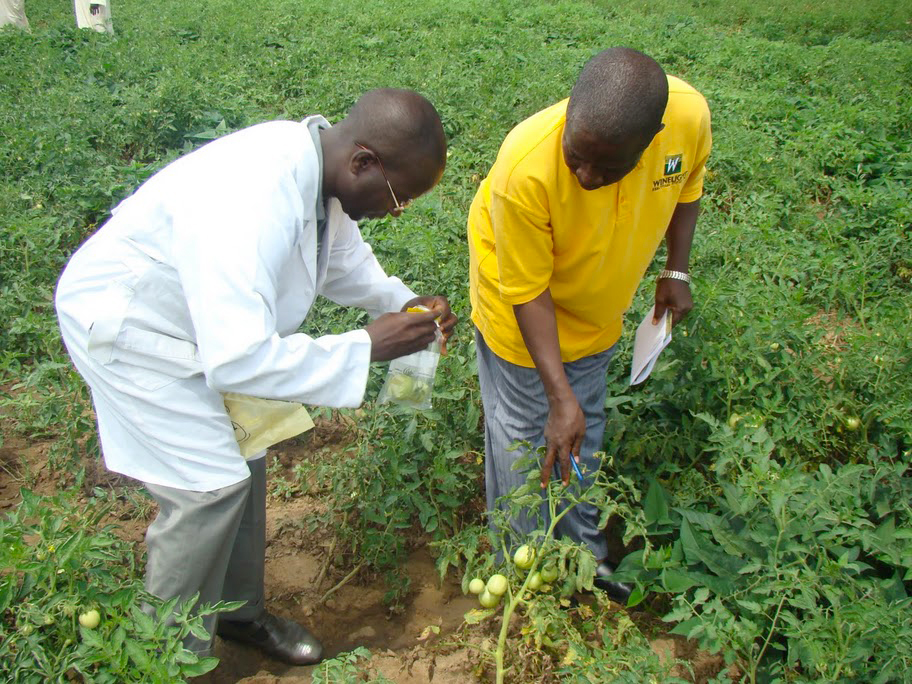
This project enhances regional and international trade in Nigerian tomatoes by developing a science-based good agricultural practices (GAPs) curriculum and training programs to improve production, food safety and phytosanitary compliance.
Led by Sally Miller of the Ohio State Univeristy, this project's international team conducted a rapid appraisal with market vendors and a socioeconomic survey with farm households in northwestern Nigeria to determine their knowledge, attitudes, perceptions and practices regarding produce food safety, quality and plant health. The farm household survey also identified the sources and magnitude of microbial contamination of tomatoes. Water and produce were also tested for selected human and plant pathogens, and farms are surveyed for major diseases, pests and other production problems.
Information from the surveys is used to develop GAPs guidelines to fit local market preferences, production systems and capabilities, and training modules for agricultural extension workers for scaling-out to farmer producers and other segments of the tomato value chain.
Developing the institutional capacity to design and implement GAPs will increase tomato production, quality and safety. The process will also lay the foundation for expanded tomato exports and trade. The results will increase incomes of smallholder farmers, including women, and contribute to enhanced food security and economic growth.
